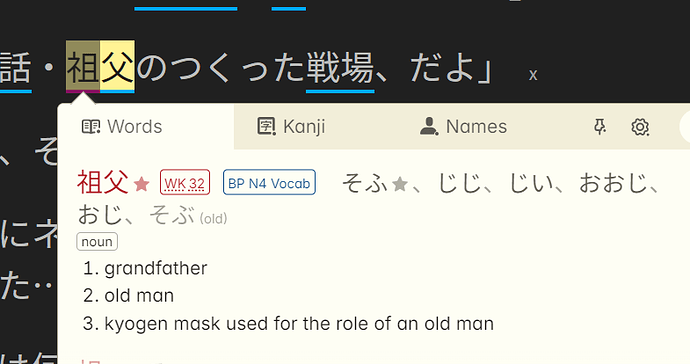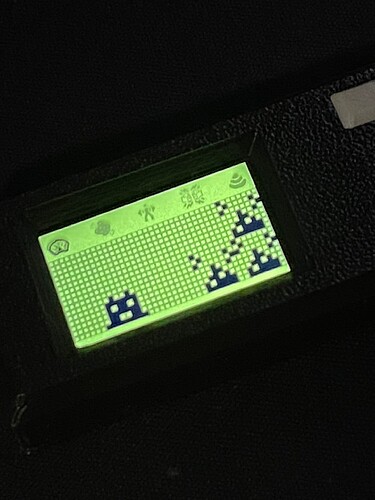If you’re familiar with Yomitan, it’s a pop-up dictionary tool with support for multiple kinds of dictionaries. Bilingual, monolingual, frequency, pitch, etc. It would be really cool if Bunpro had support in Yomitan. Imagine looking up an unknown word or grammar pattern in Yomitan and being able to click a button to open a link to it on Bunpro in a new tab. It would be really convenient because if I’m reading an ebook or a news article or something and I find an unknown word or grammar pattern that’s in Bunpro’s database I could learn it on the fly and add it to my reviews.
Yomitan is open source and anyone can make a Yomitan dictionary, and they’re easy to make too because they’re just json datasets that get rendered out into HTML.
I want a Bunpro “dictionary” for Yomitan that has links for all of the words and terms to their relevant pages on Bunpro’s website. I would make it myself but Bunpro doesn’t have a publicly accessible API and I don’t want to scrape it. It probably wouldn’t be too hard for someone at Bunpro to write a python script that goes through the database and adds every term and link to a json database and make a Yomitan dictionary from it.
What do you guys think?




